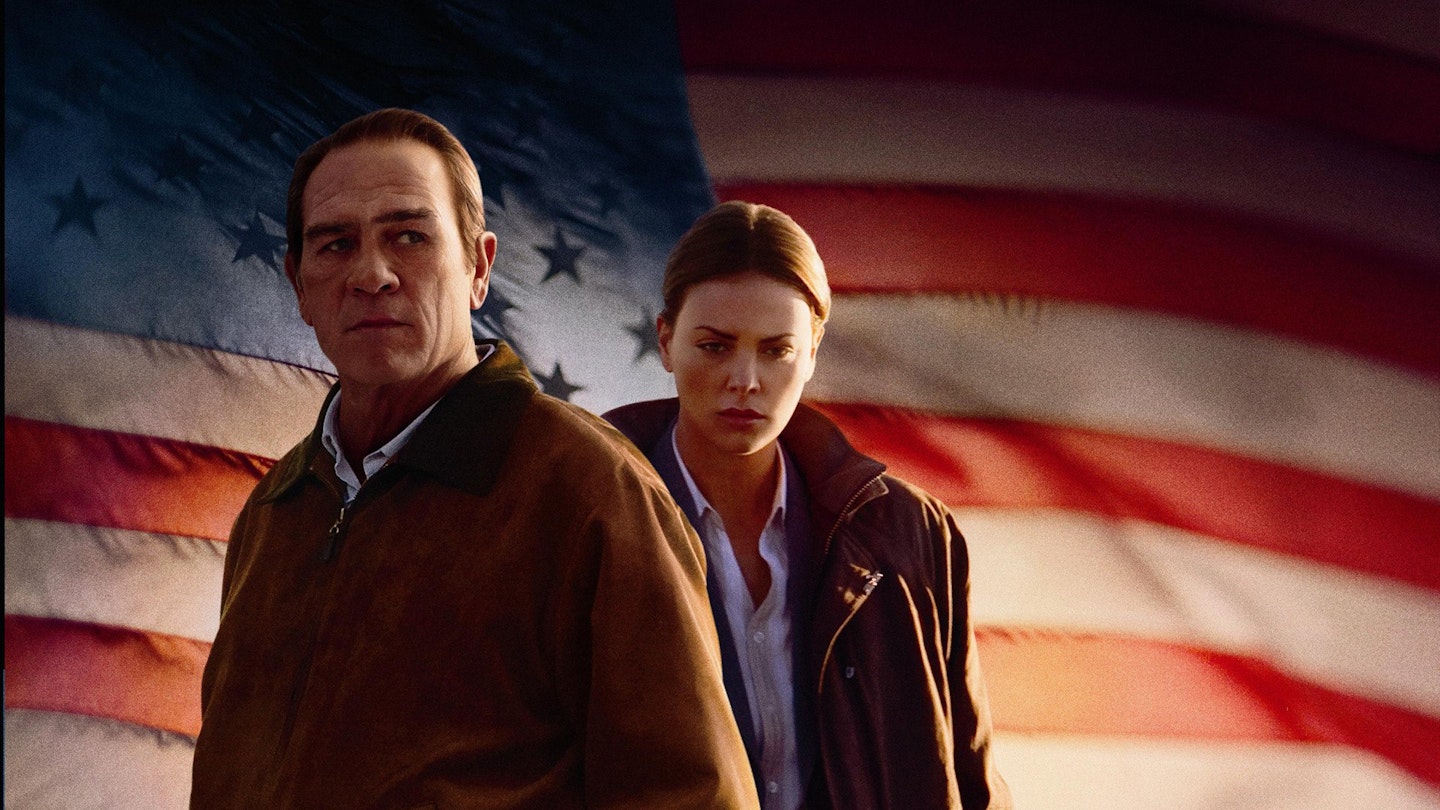Tommy Lee Jones doesn’t need to prove his acting chops, not that anyone would dare request it. But if he did, this month’s two performances - the other in No Country For Old Men - would comfortably do the job. Elah, the second directorial outing from Crash’s Paul Haggis, was supposed to be a victory lap for an undoubted new filmmaking talent, but it’s Jones’ film to its boots.
Jones admittedly has a stock character - stoic, manly, seasoned by the years and the mileage - but it’s the subtle variations that make him a joy to watch. In The Fugitive, he added implacable and a soupçon of sympathetic; in Men In Black, he served it deadpan. Here he surpasses previous accomplishments with his layered portrait of Sergeant Hank Deerfield.
This is an older, weary Jones, lacking the breezy self-assurance of his ’90s thrillers. Deerfield displays the tics of long service - shining his shoes before bed, neatly packing a bag with military-issue white T-shirts before setting off in search of his missing army son. There’s a lovely moment as he sits in his undershirt in a laundromat, when he rushes to don a (still wet) shirt before he can bear to talk to Charlize Theron’s lady cop. Such martial habits emphasise the warm heart beneath and the sadness in his eyes. It’s devastatingly affecting, and most likely the performance of the year.
Without Jones, though, the source material (based on a true story that appeared in Playboy) could have come across as plodding - a sort of The General’s Daughter with lofty aspirations. Haggis’ screenplay tries to be both whodunnit and political comment, and succeeds far better in the former - an effective riddle signalling military cover-up, drug trafficking, suicide and murder.
Frustratingly, Haggis still displays the same soft spot for overt symbolism and grand dramatic gestures that made Crash such a divisive experience. But despite his continued emotional prompting, it’s the performances he elicits from his quality cast that make this a more convincing and personal picture than his sometimes artifical, surprise Oscar-winner. Susan Sarandon and Theron stand out. Sarandon has a tiny role, transformed by a late-night phone call with Jones that is beautifully played, her anger directed at the father whose love for the military put their children in the firing line. Theron, meanwhile, is a beleaguered police lieutenant and single mum, a downbeat role she plays with depth and honesty.
So is it a portrait of the dehumanising effects of war, or the poor state of the nation, or just a murder mystery? A slightly fumbled last act would have us believe it’s all three, and it almost convinces. But compared to the recent big ideas of The Kingdom and Lions For Lambs, Elah is a simple family tragedy. Approach it as a personal take on universal injustices, free from bombast and preachiness, and you’ll be rewarded.
